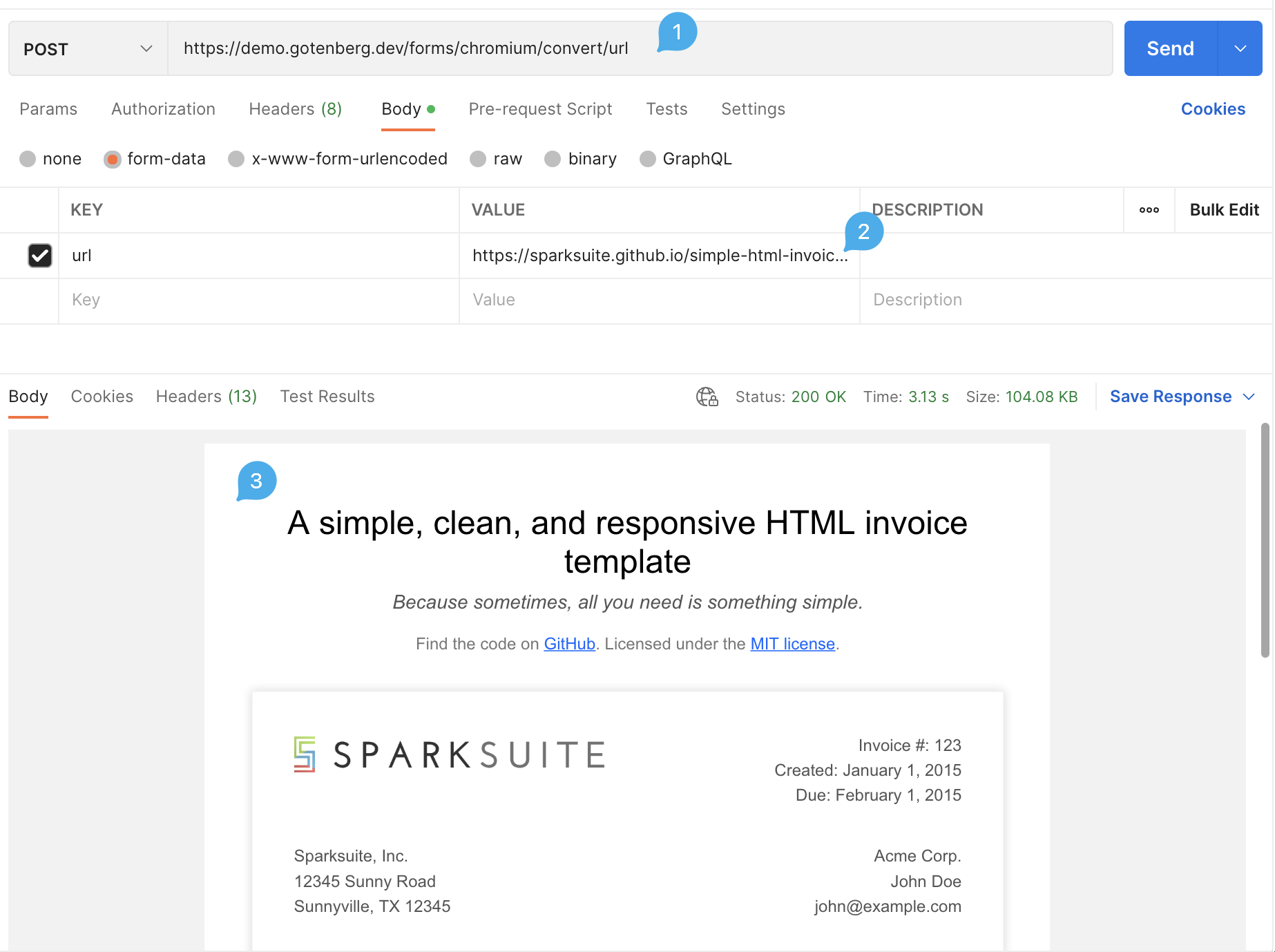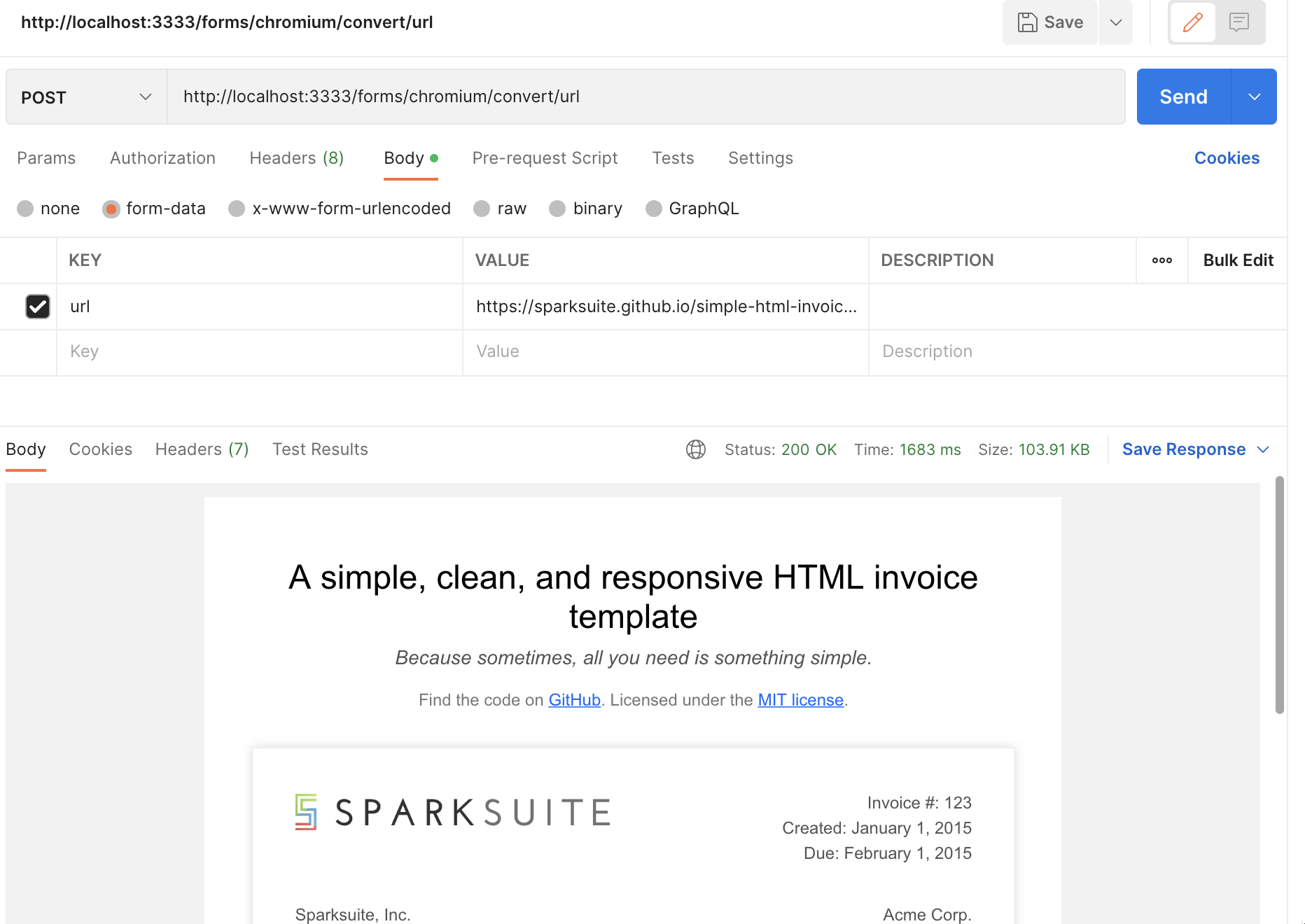If you can use Docker, then a great solution for you may be Gotenberg.
It's an incredible service that can convert a lot of formats (HTML, Markdown, Word, Excel, etc.) into PDF.
If your page render depends on JavaScript, then no problem, it will run it and wait (you can even configure the max wait time) for the page to be completely rendered to generate your PDF.
We are using it for an application that generates 3000 PDFs per day and never had any issue with it.
Demo:
Take a look at this sample HTML invoice: https://sparksuite.github.io/simple-html-invoice-template/
Now let's convert it to PDF:
![enter image description here]()
Boom, done!
1: Gotenberg URL (here using a demo endpoint provided by Gotenberg team with some limitations like 2 requests per second per IP and 5MB body limit)
2: pass an url parameter with the URL of the webpage you want to convert
3: You get the PDF as the HTTP response with Content-Type application/pdf
Curl version:
curl --location --request POST 'https://demo.gotenberg.dev/forms/chromium/convert/url' \
--form 'url="https://sparksuite.github.io/simple-html-invoice-template/"' \
-o myfile.pdf
Node.JS version:
const fetch = require('node-fetch');
const FormData = require('form-data');
const fs = require('fs');
async function main() {
const formData = new FormData();
formData.append('url', 'https://sparksuite.github.io/simple-html-invoice-template/')
const res = await fetch('https://demo.gotenberg.dev/forms/chromium/convert/url', {
method: 'POST',
body: formData
})
const pdfBuffer = await res.buffer()
// You can do whatever you like with the pdfBuffer, such as writing it to the disk:
fs.writeFileSync('/home/myfile.pdf', pdfBuffer);
}
main()
Using your own Docker instance instead of the demo endpoint, here is what you need to do:
1. Create the Gotenberg Docker container:
docker run -p 3333:3000 gotenberg/gotenberg:7 gotenberg
2. Call the http://localhost:3333/forms/chromium/convert/url endpoint:
![enter image description here]()
Curl version:
curl --location --request POST 'http://localhost:3333/forms/chromium/convert/url' \
--form 'url="https://sparksuite.github.io/simple-html-invoice-template/"' \
-o myfile.pdf
Node.JS version:
const fetch = require('node-fetch');
const FormData = require('form-data');
const fs = require('fs');
async function main() {
const formData = new FormData();
formData.append('url', 'https://sparksuite.github.io/simple-html-invoice-template/')
const res = await fetch('http://localhost:3333/forms/chromium/convert/url', {
method: 'POST',
body: formData
})
const pdfBuffer = await res.buffer()
// You can do whatever you like with the pdfBuffer, such as writing it to the disk:
fs.writeFileSync('/home/myfile.pdf', pdfBuffer);
}
main()
Gotenberg homepage: https://gotenberg.dev/


